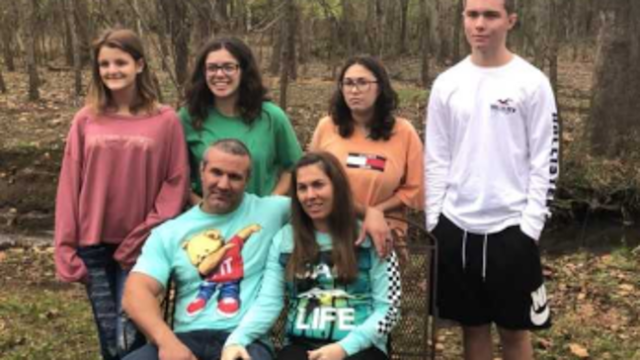Tennessee mom warns of dangerous radioactive gas that could be in your home
That was the diagnosis for the teenage daughter of April Bermingham when she was just 15-years-old. Living in Florida, April, her husband, and three other children decided to move to middle Tennessee just over a year ago for the sole purpose of being close to one of the nation's best pediatric hospitals; Vanderbilt Medical Center.
April and the family picked up and moved here just 13-months-ago, finding a rental unit until they found the right home. In the process, the family found out April was pregnant and they also found a home for the family. April and her husband signed the contract to close on their new home last month and things looked good for the soon to be family of seven.
But then the inspection came back after closing on the home. The Radon levels were higher than what is considered safe. April's home recorded a measurement of 6 pCi/L (picocuries per liter). 4 pCi/L is what is considered high by the EPA, though lower levels still pose cancer risk.
The colorless, odorless, naturally occurring radioactive gas comes from the breakdown of uranium in soil and can cause lung cancer according to the EPA. The National Academy of Sciences reports it is the second leading cause of lung cancer in the country and estimates it causes 15,000 lung cancer deaths each year.
It was a red flag for April and the family. Her daughter had overcome 140 tumors in her lungs through her battle, finally going into remission. April was pregnant and they had three other kids to keep healthy. Feeling the state of Tennessee had failed them, the family reached out to the Health Department for help. In December, a state representative called back, saying they found a company who wanted to help the new Tennesseans.
David Coffey is the president of Radon1, a Radon measurement and mitigation company which has become the largest in the state. Originally a contractor, Coffey was moved to become certified after his sister was struck by cancer. "I started doing research and found 72 percent of Tennesseans live in potential radioactive gas. I thought, people should know about this and within two years I was certified and we started Radon1," Coffey says.
Coffey visited April and her family, just a few weeks before Christmas. The family decided to keep renting since they couldn't move into a home with such high levels of Radon. Coffey shared his own personal cancer story and said he would install a mitigation system in the home for free. "It was the right thing to do," Coffey says. Thanks to his generosity, the family was able to move into their new home just before Christmas.
"He is my hero. He saved Christmas and basically our daughter's life," April told FOX 17 News. "I just want other families to know about the potential danger. It affects everyone, health conditions or not. You're still exposed to it. My friend has a brand new home and they found high levels in the crawl space," April says.
Spreading awareness is a sentiment Coffey shares. "You need a certified termite inspector why you have a home inspected but not for Radon," Coffey says. "I've never heard anyone dying of termites. There's alot of awareness which needs to happen."
In Tennessee, each county is rated by Radon zones. Zone 1 meaning the average indoor screening is greater that 4 pCi/L (action needs to be taken), Zone 2 between 2-4 pCi/L and Zone 3 being levels less than 2. 41 counties in the state are considered to be Zone 1, over a dozen in middle Tennessee -including Davidson County.
Coffey says he has tested homes in Davidson County -and others, which have tested in the 100s.
"We are just now catching up on mandates," Coffey says. "It's not regulated yet but the conversations are happening. People just need to know how easy it is to test for Radon. Everyone needs to do it."


Comments
Post a Comment